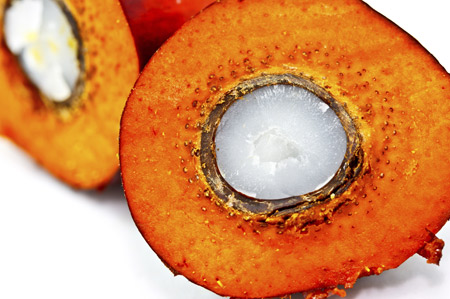Palm falls to near 1-week low as profit-taking continues
Category: Oilseeds
 (Reuters) – Malaysian palm oil futures stretched losses into a second day on Wednesday, falling to a one-week low as profit-taking continued to weigh, with some investors worried that higher prices of palm oil could see key consumers switching to rival edible oils.
(Reuters) – Malaysian palm oil futures stretched losses into a second day on Wednesday, falling to a one-week low as profit-taking continued to weigh, with some investors worried that higher prices of palm oil could see key consumers switching to rival edible oils.
Benchmark prices surged to an 18-month high of 2,916 ringgit per tonne on Tuesday after industry data showed that end-stocks in Malaysia, the world’s second-largest grower, dropped to an eight-month low of 1.66 million tonnes. But prices later gave up gains as traders booked profits.
Market players widely expect inventories shrink further as dry weather in the region continues to hinder palm oil production. Malaysia’s total output in February was only 1.28 million tonnes, a 14 percent drop from a month ago.
“Another profit-taking day. There’s also retracement and correction in a heavily overbought market,” said a trader with a foreign commodities brokerage in Kuala Lumpur.
“Everyone knows the weather is bad, the yields are bad, and end-stocks are coming down. That’s why the market rallied all the way from 2,300 ringgit levels … and now it’s making a correction after hitting 2,900 ringgit,” the trader added.
The benchmark May contract on the Bursa Malaysia Derivatives Exchange had inched down 1.8 percent to 2,821 ringgit ($858) per tonne by Wednesday’s close. Prices had earlier dipped to 2,808 ringgit, their lowest since March 6.
Total traded volume stood at 71,678 lots of 25 tonnes, more than double the average 35,000 lots.
Technicals show that Malaysian palm oil may fall to 2,764 ringgit per tonne, as indicated by a Fibonacci retracement analysis, Reuters market analyst Wang Tao said.
Palm prices could rise above 3,500 ringgit – a level last touched in April 2012 – if the crop-damaging El Nino weather patterns return to plague oil palm plantations, leading analysts earlier warned.
The spike in prices could cause key consumers to switch to competing edible oils such a soy, sunflower and canola oils for food and fuel use.
“The high price level has sparked off concerns on possible weaker demand for palm oil in terms of food and biodiesel uses, as it renders palm oil’s price competitiveness in relative to other vegetable oils,” said Phillip Futures analyst Tan Chee Tat in a note on Wednesday.
In other markets, Brent futures fell towards $108 a barrel on Wednesday as demand growth concerns at the world’s two biggest oil consumers overshadowed fears of supply disruption with geopolitical tensions over Ukraine worsening.
In other competing vegetable oil markets, the U.S. soyoil contract for May slumped 1.3 percent in late Asian trade, while the most active September soybean oil contract on the Dalian Commodities Exchange was nearly flat.




